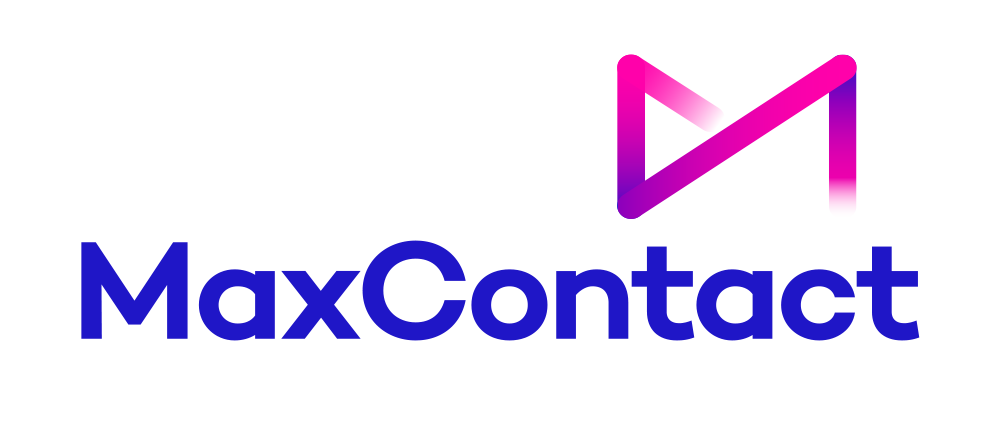5 Easy To Use Inbound Call Centre Scripts
Working in a call centre can be challenging, but it's a key aspect of any business looking to provide excellent customer service.
Inbound call centre scripts are created to ensure a consistent and efficient service experience for customers with queries or issues.
Unlike cold call sales scripts or B2B cold calling scripts, inbound scripts focus on delivering high-quality customer service rather than generating sales.
These calls can come from diverse industries such as healthcare, telecommunications, and retail.
The primary objective of inbound call centres is to ensure customer satisfaction by providing valuable information and resolving customer issues.
However, handling these calls effectively can be a challenge without the right scripts.
Inbound call centre scripts differ from customer service call script examples because they are tailored to meet the specific needs of the customer and their reason for calling.
Throughout this blog, we will explore 5 easy-to-use inbound call centre scripts, the best scripts to use, and general tips for managing these types of calls.
What is an Inbound Call?
An inbound call refers to phone calls made to a company that have been initiated by the customer. Inbound calls are usually directed towards customer service or sales teams.
Customer service calls are typically made by existing customers who have inquiries or complaints regarding a product or service. The goal is to resolve their issues efficiently to maintain customer satisfaction.
Sales calls are often from potential customers interested in a product or service. Agents will aim to provide information and encourage a purchase during the call.
How to Make Inbound Call Centre Scripts
Creating effective scripts is essential for inbound call centres. A well-designed script can help agents handle calls more efficiently, provide accurate information, and handle customer complaints or queries professionally.
These types of scripts require careful planning and consideration. The script should be concise, straightforward, and cover all the necessary information. Here are some steps to follow when creating an inbound call centre script:
Step 1: Define the Purpose
To create a successful script, it is essential to understand the purpose of the call.
Is the call about placing an order, making a complaint, or seeking information? Understanding the purpose of the call will help tailor the script to meet the customer's needs.
Step 2: Anticipate Customer Questions
The next step is to anticipate the questions that the customer might ask. Think about common queries that customers have and provide clear, concise responses.
The script should not sound robotic or scripted. It should feel natural and conversational.
Step 3: End Strong
The final step is to end the call with a strong close that shows appreciation for the customer's business. Ensure that the customer is satisfied with the information provided and that all their concerns have been addressed.
The Best Inbound Call Centre Scripts
Using a sales script or customer service call script template can help agents deliver high-quality customer service while also increasing sales. Here are some examples of the best inbound call centre scripts to use:
Example One: Placing an Order
Agent: “Thank you for calling [Company Name], how may I assist you today?”
Customer: “Hi, I would like to place an order for Product A.”
Agent: “Great! We have Product A in stock, and it comes in two sizes. Which size would you prefer?”
Customer: “I would like the larger one”
Agent: “Sure thing. Could you kindly provide me with your name, shipping address, and preferred payment method?”
Customer: “Yes, my name is [name], and I will be paying with my credit card.”
Agent: “Thank you, [customer name]. We will process your order right away, and you will receive a confirmation email shortly.”
Example Two: Technical Support
Agent: “Good afternoon; this is [Company Name] technical support. How can I help you?”
Customer: “Hi, I'm having trouble connecting to the internet.”
Agent: “I'm sorry to hear that. Can you tell me which device you are using?”
Customer: “I'm using a laptop.”
Agent: “Alright. Can you please check if the Wi-Fi button is turned on?”
Customer: “Yes, it's on.”
Agent: “Thank you. Can you please try resetting your router by unplugging it for 10 seconds and then plugging it back in?”
Customer: “Okay, I will try that.”
Agent: “Great, let me know if that works. If not, we can explore other solutions together.”
Example Three: Customer Complaint
Agent: “Hello, thank you for calling [Company Name]. How can I assist you?”
Customer: “I received a damaged product, and I want to file a complaint.”
Agent: “I'm sorry to hear that. Can you please provide me with your order number and describe the damage to the product?”
Customer: “My order number is [order number], and the product arrived with a broken handle.”
Agent: “Thank you for letting me know. We will process a replacement order for you, and it will be shipped to you within the next 2-3 business days. Is there anything else I can help you with?”
Customer: “No, that's all. Thank you for your help.”
Agent: “You're welcome, and I'm sorry for the inconvenience caused. Please don't hesitate to contact us if you have any further issues.”
Example Four: Billing Enquiries
Agent: “Hello, this is [Company Name] customer service. How can I assist you?”
Customer: “Hi, I have a question about my recent bill.”
Agent: “Sure thing. Can you please provide me with your account number?”
Customer: “Yes, it's [account number].”
Agent: “Thank you. What is your question regarding the bill?”
Customer: “I don't understand some charges on the bill.”
Agent: “I can help clarify that for you. May I put you on hold for a few seconds while I look up your account?”
Customer: “Yes, sure.”
Agent: “Thank you for waiting. It looks like the charges are for additional data usage. Would you like me to explain the charges in more detail?”
Customer: “Yes, please.”
Agent: “The charges are for the extra data that you used beyond your monthly allowance. Would you like me to go over your usage history for the past month?”
Customer: “Yes, please.”
Agent: “Alright, let me pull up your usage history. Thank you for your patience.”
Example Five: Product Information
Agent: “Thank you for calling [Company Name]. How may I assist you today?”
Customer: “Hi, I'm interested in Product B. Can you provide me with more information?”
Agent: “Of course, I'd be happy to help. What would you like to know?”
Customer: “I'd like to know the specifications and the price.”
Agent: “Product B is a high-end laptop that comes with an Intel Core i7 processor, 16 GB of RAM, and a 512 GB SSD. It's priced at $1,499. Would you like me to provide you with more information on the product?”
Customer: “No, that's all. Thank you for your help.”
Agent: “You're welcome. Please don't hesitate to contact us if you have any further questions.”

General Tips for Inbound Call Centre Scripts
Inbound call centres are essential for maintaining positive customer experiences and serving as the first point of contact between customers and businesses.
Therefore, ensuring that your inbound call centre scripts are well-crafted is essential for customer satisfaction. Below are some general tips for perfecting inbound call centre scripts:
Example 1: Practice Active Listening
Active listening is a key skill that every call centre representative should have. It involves giving customers undivided attention while they express their concerns or queries.
Representatives should avoid interrupting, making assumptions or judgements, or jumping to conclusions. Instead, they should patiently listen, acknowledge the customer's concerns, and respond appropriately.
Active listening can help customers feel heard, valued, and understood, ultimately improving customer satisfaction.
Example 2: Use Positive Language
Using positive language can significantly improve the tone and atmosphere of a conversation.
Representatives should aim to use positive, friendly, and approachable language while avoiding negative language or words that may be misinterpreted or misunderstood by customers.
For instance, instead of saying “I don't know,” representatives should say “Let me find out for you.” This way, customers feel that the representative is genuinely interested in helping them.
Example 3: Remain Calm
Remaining calm and collected, especially in difficult situations, is important to ensure that the conversation remains productive and constructive.
Representatives should avoid responding emotionally or defensively when customers express their dissatisfaction or frustration.
Instead, they should remain calm, patient, and empathetic while addressing the customer's concerns. Staying calm can help de-escalate tense situations and build trust with customers, leading to a more positive customer experience.
To ensure excellent customer service and boost call centre efficiency, it is important to create effective inbound call centre scripts. By following the steps outlined in this article, call centre agents can tailor scripts to their:
- Industry
- Target demographic
- Specific needs
It's essential to use positive language, actively listen to customers, and remain calm and collected to provide valuable assistance and build trust and loyalty.
MaxContact’s Scripting Software
Effective call centre scripts can significantly improve customer experience and drive business success, so invest the time to create them and witness the positive impact on call centre performance.
Here at MaxContact, we offer advanced call centre scripting software, which makes it easier to guide your agents through calls, gather the correct information, ensure five-star customer service and arrive at the best outcome for the client.
Our script builder is easy to use and can be used by anyone. It’s simple to create elegant scripts that capture all required information and you don’t need an IT degree to set them up.
For more information on our scripting software, don’t hesitate to contact us. We look forward to simplifying your customer service scripts!
.png)
From the blog






